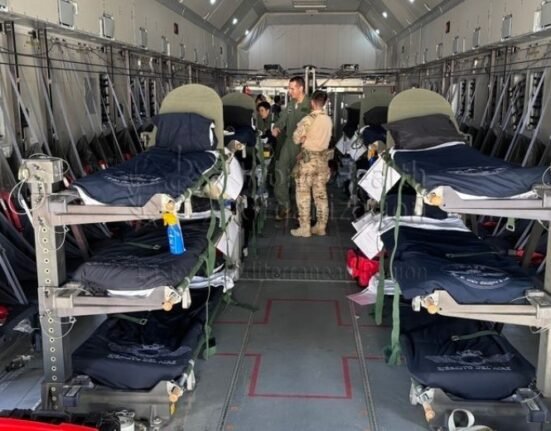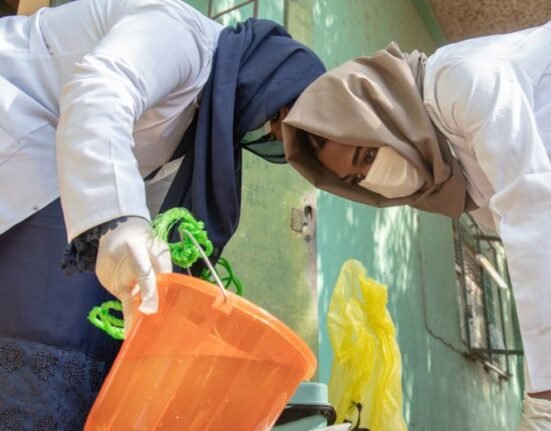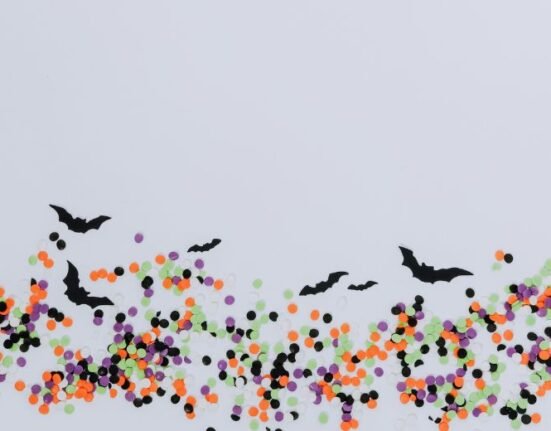HQ Team
November 18, 2023: A plan to create a safe zone at Gaza’s Al-Mawasi is a “recipe for disaster” and the WHO will not be a partner in establishing such a zone which is attempting to cram people in a small area devoid of infrastructure and services, the global health agency’s chief said.
The “WHO will not participate in the establishment of any so-called “safe zone” in Gaza without a broad agreement, and unless fundamental conditions are in place to ensure safety and other essential needs are met, and a mechanism is in place to supervise its implementation,” Tedros Adhanom Ghebreyesus, Director-General of WHO said.
The recent conflict started when Hamas-led Palestinian militants killed more than 1,200 people, most of them civilians, and took about 240 men, women and children hostage during an October 7 attack in southern Israel.
Israel declared a state of war and during the last six weeks, it retaliated by conducting an extensive aerial bombardment campaign on targets in Gaza, imposing a total blockade of the Gaza Strip and starting a large-scale ground invasion. This is the fifth such major escalation since the Yom Kippur War in 1973.
The war has led to the closure of major hospitals in Gaza as power and telecommunication facilities shut down due to a lack of fuel.
Only 10 of 36 hospitals functioning
“Al-Shifa hospital must be enabled to function as a hospital,” Tedros said, “There are reportedly up to 300 health workers and 650 patients inside the hospital. Even if Hamas has used the hospital for military purposes, the hospital, and indeed all health care facilities, are never without protection under humanitarian law.”
The “WHO continues to call for those hostages who are still alive to be released, without condition. We are deeply concerned for their health and well-being, just as we are concerned for the health and well-being of the people of Gaza, which is becoming more precarious every hour.”
He said the health system in Gaza was “near collapse.” Only 10 of Gaza’s 36 hospitals are still functioning, with just 1,400 hospital beds and many health workers have been displaced, forced to flee with their families.
More than 2000 patients with cancer, 1000 with kidney disease, 50,000 with cardiovascular disease and 60,000 with diabetes, are all at risk as their treatment is interrupted. “Up to 200 women giving birth every day in the worst imaginable conditions.”
The overcrowded shelters were reporting incidents of respiratory and skin infections, cases of acute watery diarrhoea as the sewage system broke down and people were forced to defecate in the open and malnutrition.
Pitiful aid
“But frankly, the amount of aid that has been allowed into Gaza so far is pitiful. It’s pathetic,” he said during a virtual address to the Informal Plenary Meeting of the United Nations General Assembly.
“And even the little aid we can get into Gaza cannot be distributed without fuel. It’s as simple as that. No fuel, no aid.”
The UN Security Council adopted a resolution on urgent and extended humanitarian pauses and corridors in Gaza on November 15.
“It doesn’t go far enough – we need a ceasefire – but it’s a start. We call for the immediate implementation of the resolution, and we call on all parties to abide by it,” Tedros said. “The Geneva conventions were adopted and ratified to establish what is acceptable and what is not in conflict.
Violating the neutrality of health care is not acceptable.”
According to the WHO, at least 11,500 people in Gaza have been killed, 70% of them women and children. About 1.7 million people have been displaced.
‘Unjustifiable’
“The scale of Israel’s response appears increasingly unjustifiable.
WHO, like the rest of the United Nations system, is impartial. We are not on one side or the other. We are on the side of humanity,” Tedros said.
“This crisis is an acid test for the United Nations, and for you, its Member States. If you, as Member States of the United Nations, will not or cannot stop this bloodshed, then we must ask: what is the United Nations for?”
“The crisis in Gaza is a crisis for the UN, and a crisis for humanity.”
A UN-appointed independent rights expert urged Israel to stop using water as a weapon of war.
Clean water and fuel need to be allowed into Gaza to activate the water supply network and desalination plants in the besieged enclave “before it is too late”, said Pedro Arrojo-Agudo, UN Special Rapporteur on the Human Rights to Safe Drinking Water and Sanitation.
“Every hour that passes with Israel preventing the provision of safe drinking water in the Gaza strip, in brazen breach of international law, puts Gazans at risk of dying of thirst and diseases related to the lack of safe drinking water,” he said.








